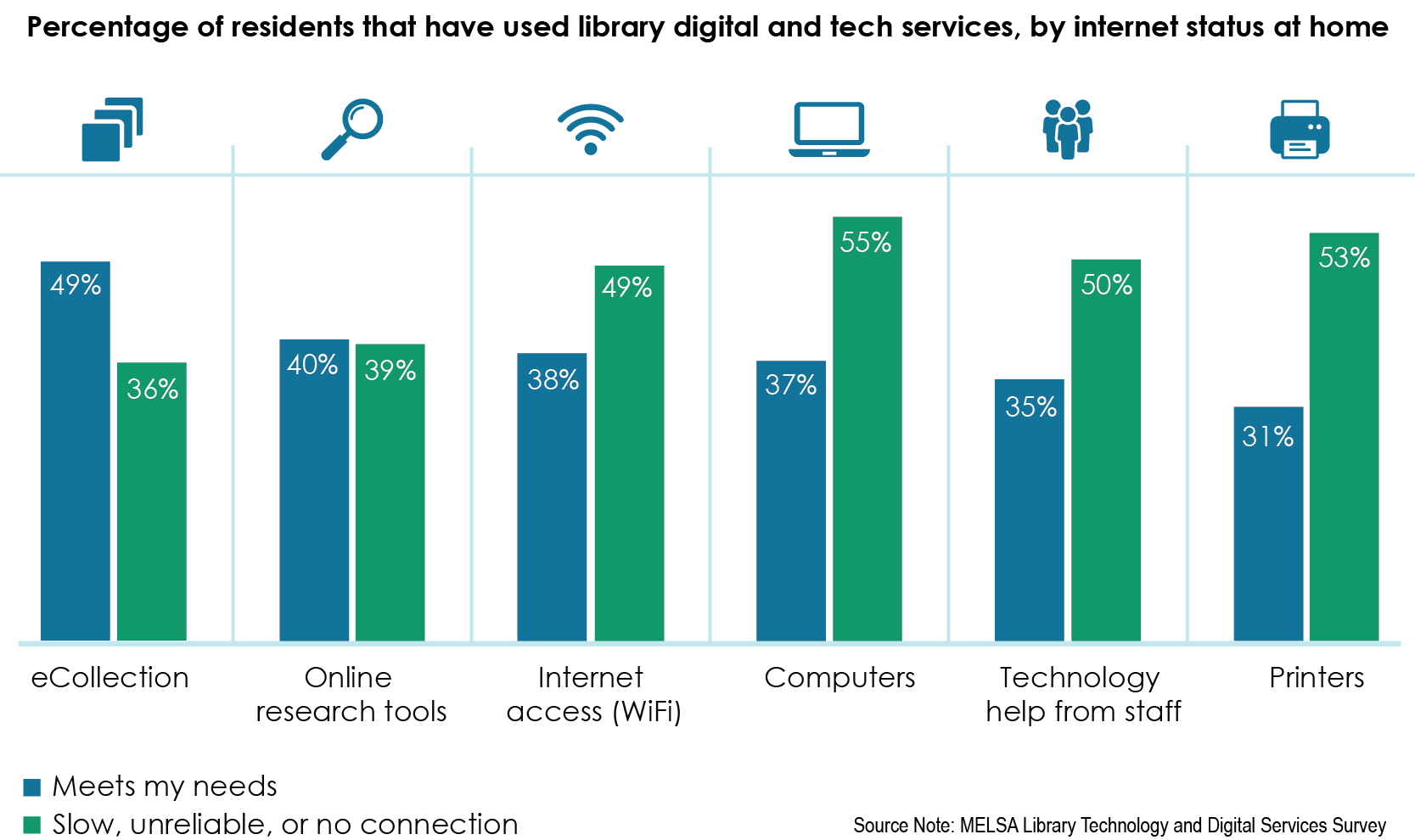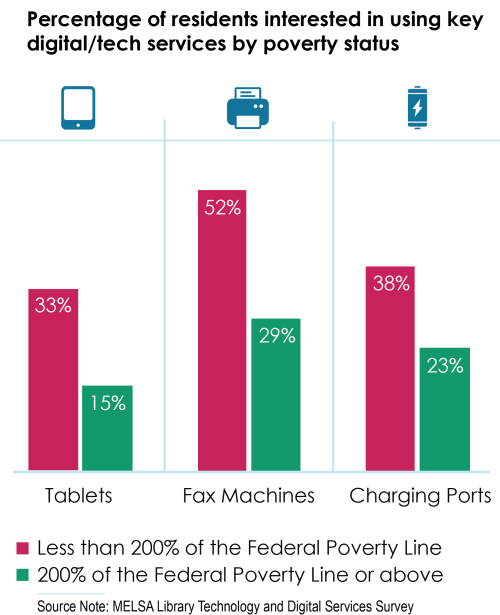Twin Cities metro area residents use libraries for digital and technology services.
According to our study, residents of all income levels, with or without reliable internet at home, use the library for a variety of digital and technology services. However, needs are different. Residents with internet that meets their needs at home most commonly use the libraries' eCollection and research tools. Residents without it most commonly use available hardware, such as computers and printers, and access library internet and technology support from staff. Over 95% of respondents reported satisfaction with existing digital and technology services at the library.
Families with children look to the library for digital and technology services.
Households with children are about twice as likely to use internet at the library as those without children. Among several common online activities, single parents more often reported going online at the library to access government information and services and to search or apply for jobs compared to other household types.
Twelve percent of residents reported that they had used the library for remote work or distance learning at least once in the past 6 months. The libraries were used for this purpose by a greater proportion of Black or African American and multi-racial residents. Free or low-cost printing, faxing, and scanning; private work space; and high speed internet were the top three most helpful things for remote work and distance learning.
Residents need access to hardware.
When asked what other types of services they would use if available to them, residents indicated various expanded hardware offerings, including:
- Charging ports (41%)
- Scanners (36%)
- Wi-Fi hot spots (33%)
- Fax machines (32%)
- Docking stations (25%)
- Tablets (20%)
- Video conference rooms (20%)
Some hardware are more important to residents with lower household incomes compared to higher household income residents.
Libraries are responding to community needs for digital and tech services and support.
In response to the survey results, MELSA libraries are building on current initiatives and making informed plans for investment in digital and tech services in the coming years. Based on county-specific information:
- Dakota County Library is installing more charging ports and is continuing to offer a significant number of Wi-Fi hotspots.
- Anoka County Library will be using study findings inform their strategic plan.
- Carver County Library received a grant to install charging ports.
- Hennepin County Library recently expanded their Wi-Fi access to outside their buildings so that people can access Wi-Fi from the library parking lot at any time.
- Saint Paul Public Library also expanded their Wi-Fi access to parking lots, and is distributing internet-enabled devices (ECF hotspots & Chromebooks) to help Saint Paul residents get and stay connected to the technology they need to fully participate in work, school, and other important life activities.
Population-based studies like this can offer information to inform decisions that help meet community needs and close equity gaps.
Learn about the MELSA Library Technology and Digital Services Survey
- Contact Mona Scott of MELSA at mona@melsa.org for more information about the study.
- A total of 3,230 people completed the survey (a 16% response rate). Survey response data were weighted against the U.S. Census Bureau’s 2020 Population Estimates to produce reliable estimates of population parameters.
- Read the Library Technology and Digital Services Survey aggregate report, system-level summary reports, and a detailed methodology report.


